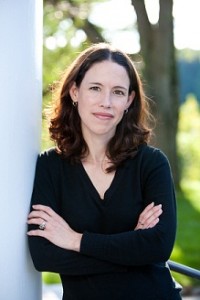
Do children of gay and lesbian parents play the same way children of heterosexual parents do?
If not, how do they differ?
Is there a benefit or drawback to this?
Clark University psychologist Abbie Goldberg and fellow researchers Deborah Kashy of Michigan State University, and JuliAnna Z. Smith of The Center for Research on Families at The University of Massachusetts/Amherst, examine this research question in their paper “Gender-Typed Play Behavior in Early Childhood: Adopted Children with Lesbian, Gay, and Heterosexual Parents.”
The results are published in the November 2012 issue of Sex Roles: A Journal of Research. Theirs is one of the first studies to examine the gender typed play behaviors of preschoolers who were adopted children of lesbian, gay, and heterosexual parents.
By studying 126 lesbian, gay, and heterosexual couples who all became parents through adoption, Goldberg’s study avoids potential confounds related to biological parent-child relationships, because gender-typed behavior may be shaped both hormonally and genetically. The gender-typed play behavior was measured by parent reports on the Pre-School Activities Inventory.
The study found that the play behaviors of boys and girls in same-gender parent families (i.e., lesbian and gay parent families) “were more similar (less gender stereotyped) than the play behaviors of boys and girls in heterosexual-parent families. “
In explaining this finding, Goldberg and her colleagues note that “lesbian/gay parents may create different home environments for their children because of their own tendency to hold less gender-stereotyped beliefs and behaviors than heterosexual parents. Lesbians and gay men tend to have less gender-typical interests and hobbies and more liberal attitudes toward gender roles than heterosexuals.”
“Our study found that children with lesbian and gay parents have a more varied and flexible repertoire when it comes to toy choice and activity preferences,” said Goldberg. “This can be read as a potential strength that may aid them later in life, since playing with different types of toys facilitates different types of skills.”
The research also revealed that sons of lesbian mothers were less masculine in their play behavior than sons of gay fathers and sons of heterosexual parents, although their behavior still fell within what would be considered the “normal” range of gender-typed behavior.
An example of this would be a young boy who plays with some gender-specific toys (e.g., balls, trucks) but also enjoys playing with dolls. “A finding like this would tend to make the general public skittish, but it shouldn’t,” said Goldberg.
She and her colleagues reference a Dutch study completed in 2006 that found that boys who scored higher on conventionally feminine traits also had better psychological adjustment scores than boys with low femininity scores, regardless of family type.
“Taken together, these findings suggest that children who engage in less gender-typed play behavior enjoy distinct developmental and psychological advantages over children who don’t,” said Goldberg.
Goldberg noted that many scholars, parents, and educators agree that the socialization of strict adherence to traditional gender roles limits boys’ and girls’ development. Goldberg received an M.S. and Ph.D. from the University of Massachusetts. She is the author of “Gay Dads: Transitions to adoptive fatherhood” (NYU Press, July 2012), the first full-length book of its kind to explore gay men’s transition to parenthood. Her first book, “Lesbian and Gay Parents and their Children: Research on the Family Life Cycle” (APA Books 2009), won several awards. Goldberg currently serves as a senior research fellow at the Evan B. Donaldson Adoption Institute in Newton, Mass., and is co-editor of “LGBT-Parent Families: Innovations in Research and Implications for Practice” (Springer, October 2012). Her blog, which is geared toward adoptive families, gay parent families, and other families born of love not blood, can be found on the Psychology Today website. Goldberg has taught in the Department of Psychology at Clark University since 2005.


